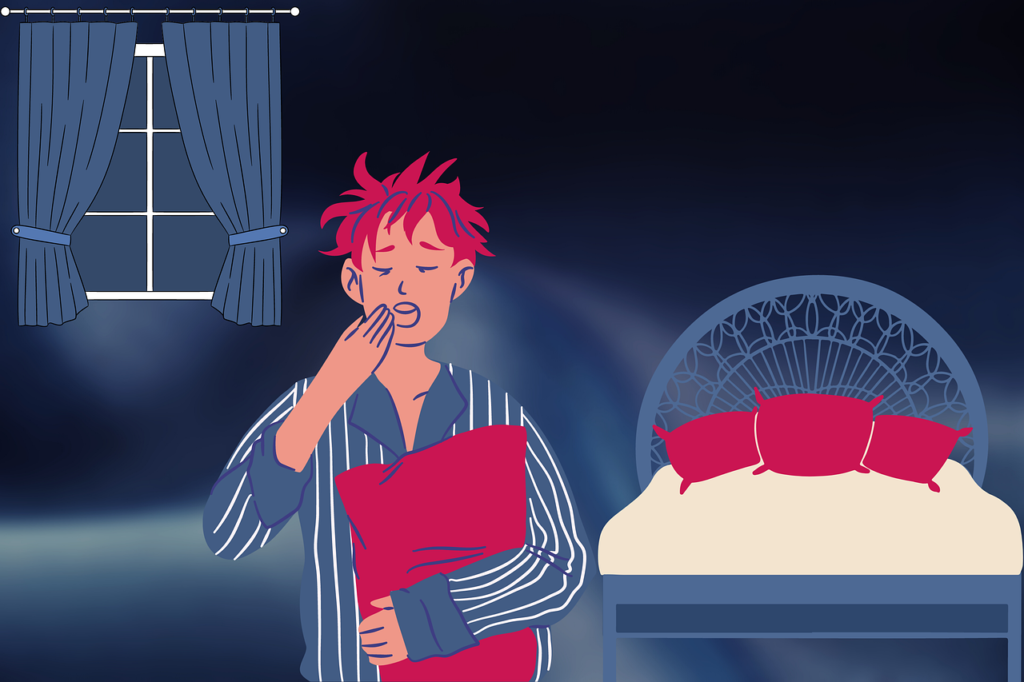Understanding Your Sleep Needs: How Much Sleep Do You Really Need?
Do you constantly hit the snooze button, yearning for just “five more minutes”? Or perhaps you wake up feeling groggy even after a full night’s sleep. Ever wonder, “How much sleep do I really need?” This post dives into the world of sleep needs, exploring factors that influence how much sleep you require and offering tips to discover your personal sleep sweet spot.
Why Sleep Matters: Beyond Just Catching Zzz’s
Sleep isn’t a luxury; it’s a biological necessity. While we slumber, our bodies and minds undergo vital processes essential for optimal health and well-being. Here’s a quick reminder of why sleep matters:
- Boosts Brainpower: Sleep fuels your brain. During sleep, your brain consolidates memories, processes information, and strengthens neural connections. Adequate sleep leads to improved focus, sharper cognitive function, and better decision-making skills.
- Emotional Resilience: Feeling stressed and irritable? Sleep deprivation can exacerbate emotional swings. Conversely, sufficient sleep promotes emotional well-being and resilience, allowing you to navigate daily challenges with a calmer outlook.
- Physical Repair and Renewal: Sleep is your body’s repair shop. During sleep, your body releases growth hormone, promoting muscle repair and tissue regeneration. Your immune system also strengthens, making you more resistant to illness and injury.
- Increased Energy Levels: Feeling constantly tired? Chronic sleep deprivation zaps your energy reserves. Getting enough sleep recharges your batteries, providing sustained energy throughout the day.
Sleep Needs: A Spectrum, Not a Monolith
There’s no one-size-fits-all answer to the question of “how much sleep do I need?” Sleep requirements vary based on several factors:
- Age: Children and teenagers generally require more sleep than adults. Newborns need around 16-18 hours, while teenagers typically need 8-10 hours.
- Genetics: Some people are genetically predisposed to needing more or less sleep than others.
- Lifestyle: A physically demanding job or active lifestyle may require more sleep for optimal recovery.
- Overall Health: Certain medical conditions can disrupt sleep patterns, and some medications can cause drowsiness.
Discovering Your Sleep Sweet Spot
So, how much sleep do you really need? Here are some tips to discover your personal sleep sweet spot:
- Pay Attention to How You Feel: Experiment with different sleep durations and observe how you feel throughout the day. Feeling tired and sluggish in the afternoon? You might need more sleep. Conversely, do you wake up feeling groggy after 9 hours? You might be oversleeping.
- Track Your Sleep Patterns: Utilize sleep tracking apps or a simple sleep journal to monitor your sleep duration and quality. This can help you identify patterns and adjust your sleep schedule accordingly.
- Listen to Your Body’s Cues: Do you fall asleep easily and wake up feeling refreshed? These are signs you’re getting enough sleep. Conversely, struggling to fall asleep or waking up feeling tired might indicate a sleep debt.
- Consult a Healthcare Professional: If you’re struggling to determine your sleep needs or experience chronic sleep problems, consult a healthcare professional. They can rule out any underlying medical conditions that might be impacting your sleep.
Remember:
- Consistency is Key: Creating and sticking to a regular sleep schedule, even on weekends, helps regulate your body’s natural sleep-wake cycle.
- Quality over Quantity: While sleep duration is important, sleep quality also matters. Prioritizing good sleep hygiene practices can significantly improve your sleep quality.
- Individual Needs: Don’t compare yourself to others! Embrace the fact that sleep needs vary from person to person.
By understanding your sleep needs and prioritizing a healthy sleep routine, you can unlock a world of benefits. You’ll wake up feeling refreshed, energized, and ready to tackle your day! Sweet dreams!

